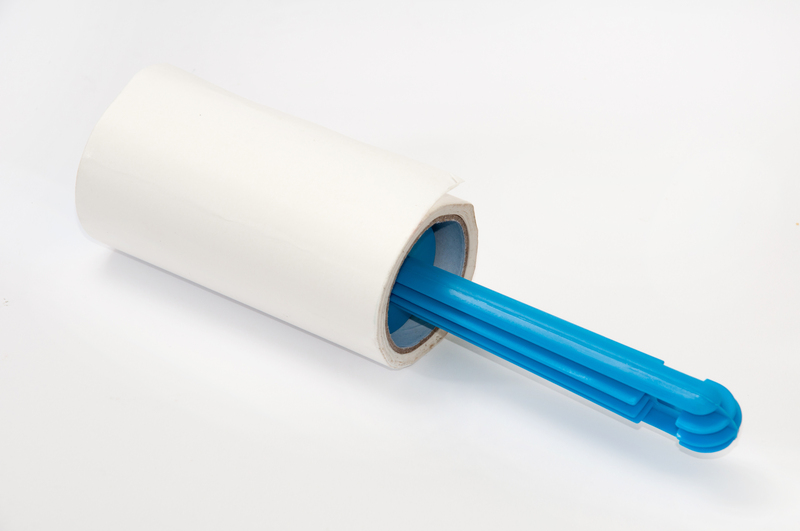A Comprehensive Guide to Tackling Pet Odors
Posted on 01/07/2025
A Comprehensive Guide to Tackling Pet Odors
Pets enrich our lives with love, loyalty, and laughter. However, as much as we adore our furry friends, pet odors can become a real challenge for pet owners. Unpleasant smells from cats, dogs, and other animals can linger in carpets, upholstery, and even in the air, causing embarrassment and discomfort. A Comprehensive Guide to Tackling Pet Odors will walk you through effective, practical, and sustainable solutions. With this guide, you'll reclaim your fresh-smelling home.
Understanding the Sources of Pet Odor
Before you begin eliminating unwanted odors, it's crucial to comprehend where these smells originate. Not all pet odors are created equal, and each may require a tailored approach.
Common Sources of Persistent Pet Smells
- Urine and Feces: Accidents or litter box issues are the most notorious contributors.
- Pet Dander: Microscopic flecks of skin can carry allergens and smells.
- Saliva: Drool and licked areas possess proteins that can smell over time.
- Fur and Hair: Pet coats can trap and release odors, especially after outdoor play.
- Infection or Illness: Sometimes, a persistent odor is linked to a health issue requiring a vet visit.
- Cages, Beds, and Toys: Items your pet uses regularly can harbor strong scents.
The Science of Pet Odors
Odors arise when organic matter breaks down, releasing volatile compounds that our noses interpret as unpleasant. Understanding this chemical process helps in selecting the right cleaning products and techniques for removing pet odors permanently, instead of just masking them.

Effective Strategies for Tackling Pet Odors
A fresh and clean-smelling home starts with a proactive plan. Here are the most effective ways to get rid of pet smells:
1. Immediate Cleanup Is Crucial
Quick action helps prevent permanent odor damage. As soon as you notice pet urine, vomit, or feces, blot the area with paper towels or a clean cloth. Remove as much moisture as possible before any cleaning solution is used. For pet accidents on hard floors, use a disinfectant that targets bacteria and neutralizes smells.
2. Deep Cleaning Carpets and Furniture
- Steam Cleaning: Hot water extraction removes embedded pet dander and organic waste.
- Enzymatic Cleaners: Specially formulated to break down organic molecules, eliminating stubborn animal odors at their source.
- Baking Soda: Sprinkle generously on carpets and fabrics. Let it sit overnight and vacuum thoroughly to absorb lingering odors.
3. Washing Pet Bedding and Accessories
Machine wash beds, blankets, and washable toys weekly with a cup of white vinegar added to the rinse cycle--it naturally neutralizes pesky smells. For non-washable items, spraying with a mixture of water and baking soda, then airing out in the sun, can be highly beneficial.
4. Odor Neutralizers and Air Purifiers
- Activated Charcoal: Use charcoal sachets or bags near litter boxes or pet beds to absorb unwanted scents naturally.
- HEPA Air Purifiers: These devices trap airborne pet dander, fur, and micro-particles that cause odor.
- Natural Deodorizers: Place bowls of white vinegar or coffee grounds in musty rooms to refresh indoor air naturally.
5. Litter Box Maintenance
Cat litter boxes are often the main culprit for household pet smells. Daily scooping and bi-weekly deep cleaning using non-toxic deodorizers keeps the box (and your home) fresh. Consider investing in high-quality, clumping, and odor-absorbing cat litter for optimal results.
6. Regular Pet Grooming
- Bathing: Bathe your dog or cat regularly (as recommended for the breed), using pet-safe, deodorizing shampoos.
- Brushing: This removes loose fur and dander, minimizing odor buildup.
- Dental Hygiene: Bad breath is a primary cause of pet-related odors. Use vet-recommended pet toothpaste and chews.
7. Hard Surface Disinfection
For tile, laminate, or hardwood floors, use a mixture of warm water, vinegar, and a few drops of dish soap. This solution removes stains and smells while being safe for pets. Rinse well to avoid residue.
DIY Solutions vs. Commercial Odor Removers
Choosing between homemade remedies and commercial products is often a matter of personal preference, effectiveness, and safety.
Popular DIY Home Remedies
- Baking Soda Paste: Ideal for spot treatments on fabrics and surfaces.
- Lemon Juice and Vinegar: Cuts through smells and leaves a fresh scent.
- Hydrogen Peroxide: Dilute for use on stubborn stains and odors (test on hidden areas first).
Always patch-test DIY solutions on inconspicuous spots to prevent damage or discoloration.
Commercial Pet Odor Eliminators
- Enzyme Sprays: These break down the proteins in urine and feces that cause lingering smells.
- Ozone Generators: While effective, these require proper ventilation and pet removal during operation.
*When using any cleaning product, ensure it's safe and non-toxic for pets by checking the label or consulting your veterinarian.*
Preventing Future Pet Odors
The best way to control pet odors is by preventing them in the first place. Consistent maintenance and training are your strongest defenses.
Train Your Pets
- Proper Litter Training for Cats: Provide enough litter boxes (one per cat, plus one extra). Keep them in easily accessible, quiet locations.
- Housebreaking Dogs: Reward desired behavior and create a regular schedule for bathroom breaks.
Consistent Cleaning Routines
- Vacuum carpets and upholstery at least twice a week with a HEPA filter vacuum.
- Wipe down pet paws after outdoor walks to prevent outdoor smells from entering the home.
- Regularly wash pet accessories, including collars, leashes, and toys.
- Deodorize frequently-used rooms with natural or pet-safe products.
Healthy Pets, Fresh Homes
Many pet odors are related to health problems, including dental disease, ear infections, or skin conditions. Regular vet checkups and dental cleanings not only keep your companion healthy but also help keep your home smelling its best.
Special Tips for Stubborn Pet Odors
Sometimes, despite your best efforts, strong pet odors persist. Don't lose hope! Here are additional, advanced tips for the most challenging problems:
- Carpet Replacement: If the padding under your carpet is soaked with urine, replacement may be necessary.
- Sealant for Subflooring: In severe urine cases, sealing wood or concrete subfloors traps odors and prevents future issues.
- Professional Cleaning: Hire a certified pet odor removal company for deep cleaning and odor elimination if DIY methods fail.
Persistent odors can sometimes indicate a larger problem, such as mold or underlying water damage caused by repeated pet accidents. Investigate thoroughly if smells linger after cleaning.

Eco-Friendly and Safe Cleaning for Pets
Creating an odor-free home shouldn't come at the expense of your pet's health or the environment. Many commercial odor removers contain harsh chemicals that can harm pets or sensitive individuals.
- Choose green-certified, plant-based cleaning products.
- Ventilate rooms well after cleaning.
- Avoid products containing phthalates, chlorine bleach, and ammonia.
Always store cleaning products safely out of your pet's reach and rinse any surfaces pets use regularly with water after disinfecting.
Conclusion: Enjoy a Fresh-Smelling Home--Every Day
Eliminating pet odors requires an ongoing commitment, but with the right habits, tools, and cleaning solutions, a harmonious home environment is always within reach. From proactive cleaning to strategic use of deodorizers and tackling issues at the source, you have everything you need to enjoy the company of your beloved pet--without the whiff of unwanted odors.
Start today with these proven strategies, and breathe easy knowing your home is truly pet-friendly and odor-free!
Frequently Asked Questions About Tackling Pet Odors
-
Q: Can air fresheners alone remove pet odors?
A: Air fresheners only mask odors temporarily; for lasting results, always clean and treat the source of the smells. -
Q: What is the fastest way to get rid of pet urine smell?
A: Blot the area, use an enzymatic cleaner, and ventilate the space immediately. -
Q: How often should I wash pet bedding?
A: At least once a week, or more often for pets with odor or skin issues. -
Q: Is it safe to use essential oils around pets?
A: Some essential oils are toxic to pets; always check with a veterinarian before using them.
Now that you're equipped with this comprehensive guide to tackling pet odors, enjoy every moment with your pet--with peace of mind, and fresher air!
Latest Posts
The Hidden Benefits of Maintaining Optimal Air Quality
Maintain Your Sofa's Glory with Our Cover Washing Techniques
Discover How to Maintain Streak-Free Windows




